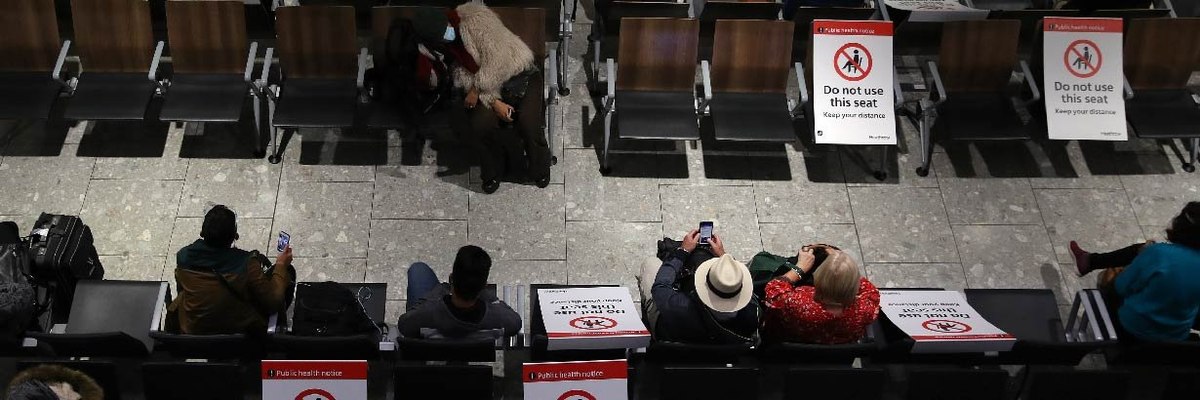Most people in a large global survey support banning foreign arrivals and handshakes, while social media crackdowns and rationing food is more controversial
Data from the YouGov-Cambridge Globalism Project, which tracks attitudes in 25 countries, shows which lockdown measures have the most support globally when the next global outbreak occurs.
If a pandemic similar to COVID was to take place again, most people in the surveyed countries would support banning foreign arrivals. This is the most popular policy among the eleven restrictions asked about, with an average net score of +54 (positive net scores mean that more people are in favour than against, while negative net scores mean the opposite). Countries with very strict border restrictions like New Zealand and Australia have been among the most successful nations to limit the spread of COVID.
Banning handshakes came second at an average of +47, however it scores significantly lower in the US, at +9. A similar figure across the countries (+45) support banning outbound travel.
All measures except three have higher support than opposition. The most disliked initiative is rationing the amount of food people are allowed to buy, with an average net score of -16. It’s least popular in Nigeria at -53, while people in India are the most supportive at +45. In the UK, where many supermarkets have limits on in-demand items for online orders, there is more support than opposition, at +16.
Only allowing one person from each household to be outside at a time also has strong opposition in many countries, with an average net score of -6.
The same goes for governments preventing people from discussing stories or rumours about the virus on social media at -5, however individual countries differ more strongly in this instance. India (+62), Saudi Arabia (+45) and Egypt (+37) show the highest support, while Sweden (-48), Greece (-46) and Denmark (-44) are the most opposed.











